by Kevin Obsatz
About, about, in reel and rout
The death-fires danced at night;
The water, like a witch’s oils,
Burnt green, and blue and white.
And some in dreams assurèd were
Of the Spirit that plagued us so;
Nine fathom deep he had followed us
From the land of mist and snow.
– The Rime of the Ancient Mariner
Five Years Ashore at the Cannes Film Festival
If Hollywood serves as The Dream Factory for western culture, then the Cannes Film Festival is the dream within a dream. In LA, the actual daily grind of making movies keeps getting in the way of dreaming about it – but Cannes gets to remain pristine, a summer camp experience, a Garden of Earthly Delights far from home.
The dream burns bright on the Mediterranean each spring, and in my early twenties, as an eager young filmmaker, I managed to get myself to Cannes five consecutive times under various auspices, from 2000-2004. Cannes seemed like my last hope, the saving grace of the art of the moving image. If there was anyplace in the film world that I could fit in and find a home, surely it would be there, I thought.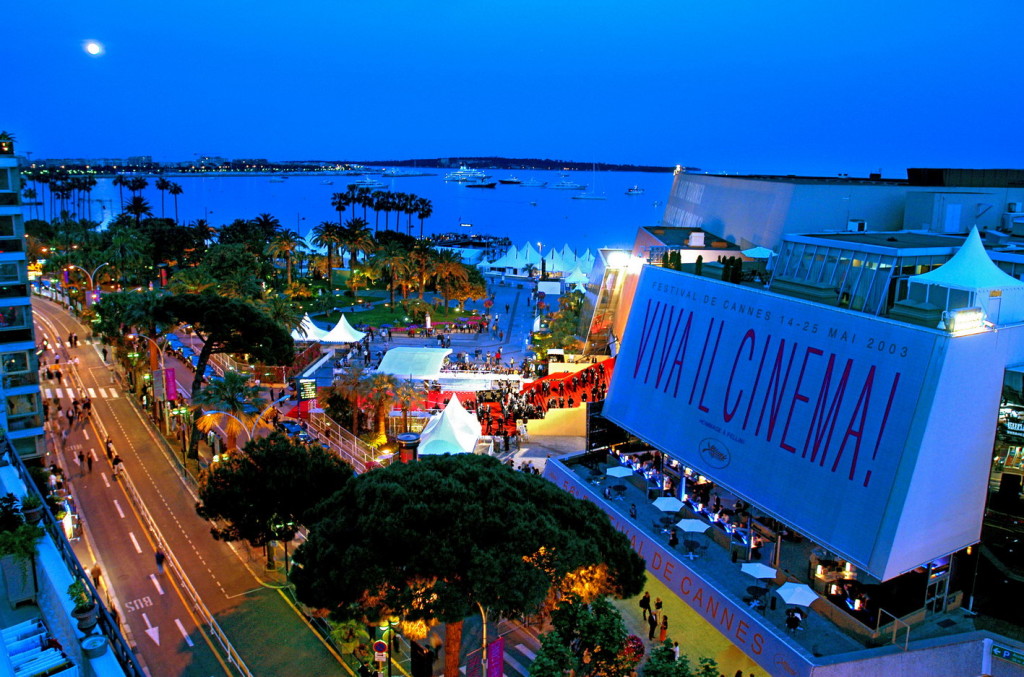
To conclude this trilogy of essays for Otherzine, I want to journey back into the darkness I found at the heart of the festival – it’s my own darkness, but I doubt it was there for me alone; I saw it reflected in the faces of many Spirit-plagued artists I met there. Regardless, I hope there’s some value in seeing the festival through my eyes.
Cannes 2000: “Jumpstart Your Career!”
Through the American Pavilion Student Program, I was placed as an intern at a company called Independent Pictures run by Cary Woods, who was famous for being one of the producers of Swingers and Scream and a handful of other breakout hits from the heyday of the Miramaxian 90’s. For an office, Independent Pictures had a palatial hotel suite on the Croisette with a view of the Mediterranean, and Mr. Woods was staying out at the fabled Hotel du Cap with the movie stars. I got to go there to try (and fail) to help set up his dial-up laptop modem.
Mostly that year I completed basic intern tasks, photocopied screenplays and ran errands. Independent Pictures was seeking financing for a handful of movies that looked really terrible to me – judging by IMDB, only one of them ever got made, a direct-to-DVD heist movie called The Prime Gig starring Vince Vaughn. Cary Woods’ movie credits taper off only a few years later, and his last mention on Wikipedia is in 2009.
It was a revelation to me that terrible movies were part of the equation at Cannes – the Marché du Film (“Film Market”) is massive and involves buying and selling distribution rights to many hundreds of movies that are not part of the festival itself; off-brand, cable-ready sequels about dogs playing basketball, baby geniuses, and that year, a seemingly ubiquitous late-middle-aged Jean Claude Van Damme, glowering down from posters and billboards, looking well past his prime and much the worse for wear.
The atmosphere of the festival was truly intoxicating, though. Some of the interns from the American Pavilion program were film studies-oriented and tried to see five movies a day, every day. Others were agency-oriented and made it their goal to bluff their way into as many exclusive parties as possible.
I couldn’t quite figure out how I fit into all of this. I did walk the red carpet in a tuxedo a handful of times, always at the end of a full day of navigating the hive-like festival. In the warmth of the rear-most balcony seats in the 3000-seat main Palais (“Palace”) theater, I fell asleep during the premiere of In the Mood For Love with Wong-Kar Wai present far below, and during the premiere of Mulholland Drive, with David Lynch and Naomi Watts in attendance.
It was particularly easy to fall asleep during the foreign films. Once I lost the thread of the subtitles the voices became a pleasant lull – in the dim womb of the Palais it was not unlike being a baby, in a perpetually half-conscious state, fading in and out of a vague awareness of brightly colored but unintelligible events happening on a distant screen, far below.
My most vivid memory from that 10-day internship was when, intoxicated by the proximity of Important Successful Artists, I managed to find the offices of the William Morris Agency, one of the premiere agencies representing actors and directors in Hollywood and worldwide. I brought them a DVD of my most recent short film, of which I was immensely proud.
The tersely polite and emphatically unimpressed agency people who greeted me at the William Morris suite were very clear that this was not the way to get anywhere in the film industry, and that they would not watch my film. I insisted on leaving the DVD with them even though they assured me that they would under no circumstances pop it into a DVD player. They were far too important and this was not a valid use of their time at Cannes. I walked away a little stunned and unsteady, new to that particular texture of rejection.
Cannes 2001 & 2002: “Where Are You Now?”
During the following year I managed to stay in touch with a freelance publicist I had met at the festival named Lucius, and he accepted my offer to work for him as a personal assistant. He even generously offered to pay me $500 plus room & board, a significant sum since rooms in Cannes during the festival aren’t cheap.
Lucius was a larger-than-life presence, six and a half feet tall with a stoop at his shoulders, and a cultured, cosmopolitan rhythm to his speech. He peered down at the festival from overhead through clunky, perpetually smudged glasses. He was from nowhere and everywhere, nomadically travelling around the world through the yearly festival calendar, spending more time on the road than at his home address in New York. He seemed to have known everybody since forever, and everybody knew him because he had always been there, loping along the Croissette (the beach-adjacent main thoroughfare of Cannes), surveying the scene.
In those days cell phones either didn’t work overseas or they charged insane International Roaming fees. So, there was a brisk market in short-term cell phone rentals, and I had one for the first time, tethering me directly to Lucius, who was the only person with any reason to call me.
“Kevin! Where are you now?” was his utilitarian greeting; at the festival, at any given moment, one might be anywhere, and my present location could dictate the course of our conversation.
He taught me that at a dinner party, it is the host’s job to make sure no wine glass is ever empty. He said things like, “let us not make beasts of burden of ourselves” when we found our bags overloaded, and his favorite criticism of other professionals at the festival was “they don’t know how to work,” – meaning, they are hopelessly disorganized, wasting energy unsustainably – an easy mistake to make in that perpetually overstimulating environment.
In the two years that I was Lucius’s assistant, he introduced me to Atom Egoyan, D.A. Pennebaker, and Alexander Payne, among other famous filmmakers. We worked directly for Zacharias Kunuk, director of the film Atanarjuat: The Fast Runner which won the Camera d’Or (the “Camera of Gold”), the second biggest award in the festival after the Palme d’Or (“Palm of Gold”), and for the Dardenne Brothers the year that their lead, Olivier Gourmet, won Best Actor for his role in their film The Son.
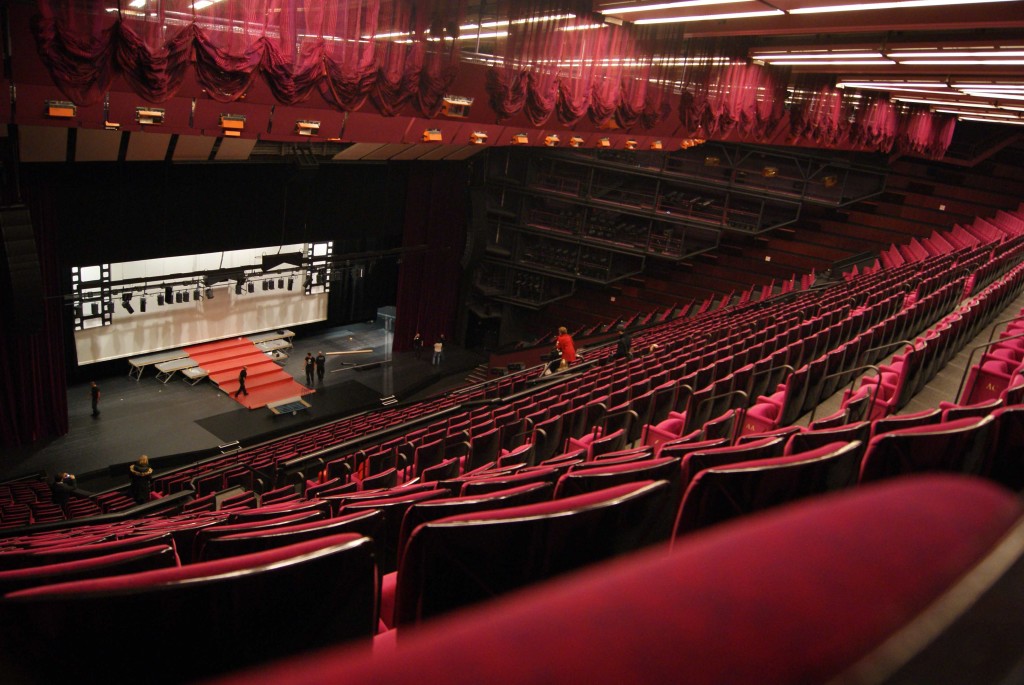 The thing I remember most about my proximity to these artists at the festival was that they didn’t seem to be having much fun. They had very specific role to play and tasks to complete, whether a series of interviews, meetings with distributors, or attendance at an awards ceremony. They seemed pleasant and down to earth, but serious, professional, on the clock at all times. I realized that for them the stakes were high – events at the festival would impact the rest of their careers. In a way they were performing the role of auteur, genius, star, and they had to do it publicly, for an international audience, day and night.
The thing I remember most about my proximity to these artists at the festival was that they didn’t seem to be having much fun. They had very specific role to play and tasks to complete, whether a series of interviews, meetings with distributors, or attendance at an awards ceremony. They seemed pleasant and down to earth, but serious, professional, on the clock at all times. I realized that for them the stakes were high – events at the festival would impact the rest of their careers. In a way they were performing the role of auteur, genius, star, and they had to do it publicly, for an international audience, day and night.
Though he was far too genteel to ever say it to my face, I think it was clear to Lucius by the end of our second year together that I did not know how to work. I couldn’t keep up with him, in body or spirit, though he gave me every opportunity. My second year assisting him was a comedy of errors, including a missed connecting flight in Brussels, broken eyeglasses held together with packing tape, and a slow-motion breakup underway with a girlfriend I had invited along, itself a demonstration of my confusion about the intersection between “festival” and “work.”
I consoled myself, when it became clear that I wouldn’t be working for Lucius again, with the thought that perhaps someday I could hire him as the publicist for one of my films. Since I’m pretty sure he will live forever, and will always be overseeing the major festivals around the world, that may yet prove to be true. But I’m not holding my breath.
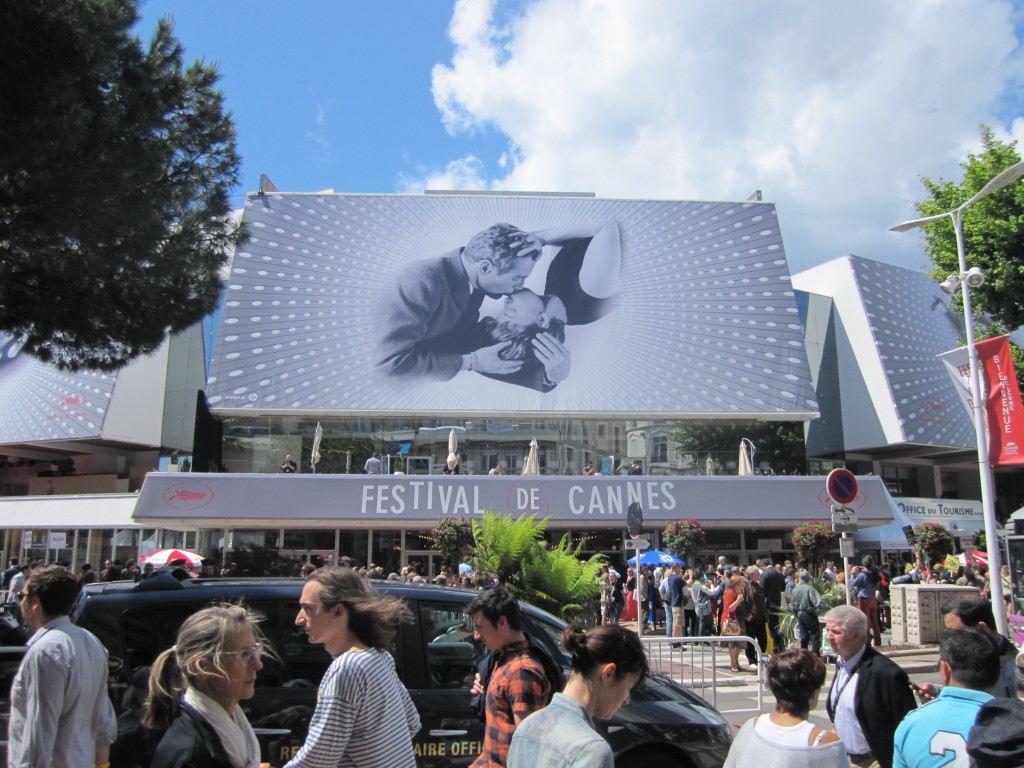 Cannes 2003 & 2004: “Maybe I Am…”
Cannes 2003 & 2004: “Maybe I Am…”
Each of the following two years I went back to Cannes as an official staff member of the American Pavilion, again for room and board though without a stipend. The first year I was an all-purpose PA, the second I was the manager of the AmPav Business Center, kind of a glorified Kinko’s on the beach.
The American Pavilion seems at first glance to be some sort of diplomatic outpost or NGO, but as far as I know it’s just a business that has provided a welcoming, English-speaking social space at the festival since 1989. They serve light fare, wine and beer, and host panels and other American Cinema-related events. Additionally, each year AmPav arranges cheap lodging, festival orientation, internships, and access passes for dozens of eager film students from the US.
In my experience, the main thing the American Pavilion provides is a glimpse of what careers in the film industry really entail. With each fresh crop of American Pavilion Student Workers, I saw more and more people who fit into one of the three categories I described earlier – ardent academics, agency acolytes, and artists adrift.
For the artists, the festival is really beside the point, a distraction from the process of making movies. Sure, screenings are important, it’s valuable to see your work with an audience and hear feedback about it. However, a gala screening isn’t really about watching the film, it’s a pageant that shows off the main selling points – a director’s reputation, the audacity of a risky thematic or aesthetic decision, or a star’s beauty and style, accented by the flattering warmth of the red carpet and the shimmer of flashbulbs.
A festival, in the archetypal sense, is about feasting, performance and revelry. It’s a celebration of a successful hunt or harvest, a ritual sacrifice to please the gods, a display of generosity, abundance and surplus.
A feast, in this context, isn’t focused on the talent of the chef, and a performance isn’t about honoring the skill of the performer. The stars of the festival are the hosts – the families marrying off their children, the rulers welcoming their guests. The key personnel have a certain status, sure, but they are always present in order to work. In the case of a film festival, the hosts are the major producers and distributors, throwing big parties to celebrate the cultural harvest, or the victory of big game brought down (acquired) by a hunting party.
The real audience is the gods (whose judgment of quality is discerned by the soothsayers of the press); the human spectators merely underscore the importance and famousness of the central figures. Everyone else in attendance – actors, directors, producers, agents, publicists, critics, buyers… all of them are there to work; to prepare the feast, to be feasted upon (metaphorically, mostly), or to clean up afterwards.
As with Lucius, I managed to absolutely fail to distinguish myself in my two years of service at the American Pavilion. Try as I might, eager though I was, I still didn’t “know how to work” by Lucius’s formulation. I suppose I still don’t.
I didn’t fit in, I didn’t know my place, I wasn’t invested enough in the festival’s subtle machinations to earn my keep. In fact, I could have returned for a sixth year – I was invited back by the American Pavilion – but I really didn’t see the point. The festival would go on with or without me, I would inevitably be frustrated, and likewise would create frustration for those capable of functioning smoothly within its formal structures.
Creating an odd set of bookends with my awkward experience at the William Morris Agency office in 2000, my last year at Cannes contained a similarly strange moment that I’m sure happened, even though it remains hard to fathom. Today I can appreciate it as a message from the cinema gods, discreetly nudging me toward the festival exit.
During my years with Lucius, he had pointed out a nondescript corner bar called Le Petit Majestic (“The Little Majestic” – the Majestic is one of the big, fancy hotels), on a side street where industry people gathered late at night, after all the screenings, to relax and informally exchange notes on what had happened that day. They served cheap beer from a keg into plastic cups, and since it was a small place, most of the patrons stood around in small groups on the street, talking, laughing and drinking together.
During my last year, while I was the manager of the AmPav Business Center, I decided to go to this bar one night, alone – to see if I might run into someone I knew, or make a friend, or… who knows. I bought a plastic cup of beer and found a spot to stand, leaning up against an exterior wall near the corner. I quickly realized I wasn’t going to nonchalantly ease into anyone’s conversational group. So I figured I’d stay there and observe, a fly on the wall, finish my beer, and head back to my hotel room.
After awhile, though, someone did approach me – I remember him as 40-ish, agency-ish, well dressed, splitting off from his friends, heading in my direction.
“You know,” he said to me, “standing there, you look like a serial killer.”
I hadn’t realized that there was a light directly above me, shining down onto the wall – probably casting some dark shadows across my face. I was also sleep deprived since it was toward the end of the festival, probably with dark circles under my eyes, and most likely perspiring in the Mediterranean heat and humidity. Flustered, I tried to make a joke of this realization, and said the first thing that came to mind.
“Who knows, maybe I am!” was my cheerful reply.
But instead of laughing, his face turned cold, angry. “Go fuck yourself!” he said, and walked away – that was it. I finished the last of my beer, and left as quickly as possible.
I still don’t know exactly how I provoked that reaction. Maybe I misread the situation, maybe he was upset, or drunk, or just sick of 20-something interns invading his professional space. But the message to me was clear, sent from on high by an insider emissary on behalf of the festival itself: you don’t belong here.
And, more than a decade later, it is pretty clear: I didn’t, and I don’t. I was conspicuously out of place at that bar, and when I really think about it, I actually have no desire to be a part of that world. The great and esteeemed filmmakers I was lucky enough to meet there weren’t there for recreation – they were there to accomplish something specific, and afterwards they were eager to go home and actually get back to work making films.
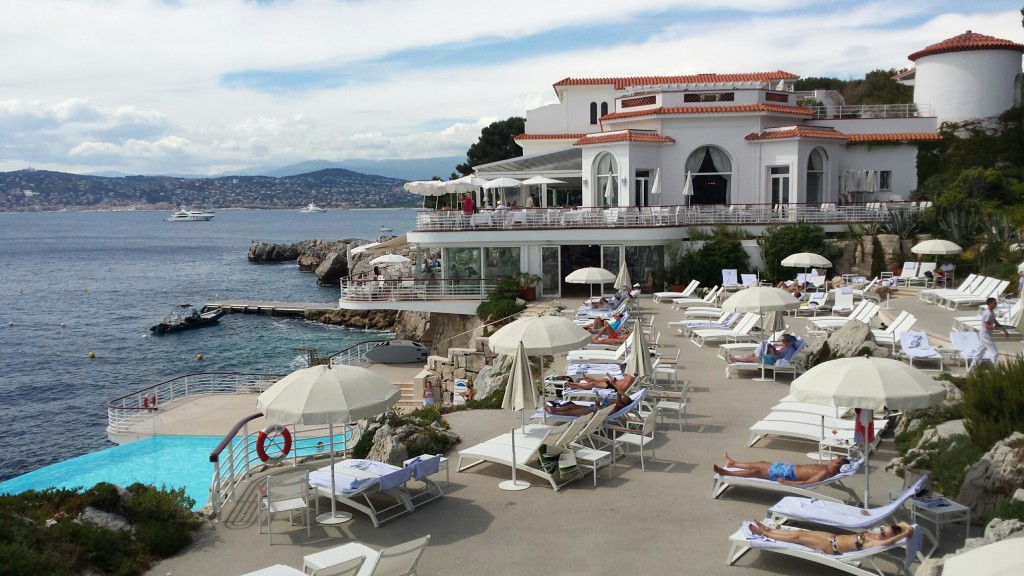 Maybe the world of cinema needs festivals, where abundance is shared and celebrated, where the gods are thanked and fatted calves and nubile virgins are (mostly metaphorically) sacrificed. Maybe it needs people like Lucius, sage pollinators who connect the makers and the schmoozers and keep the money flowing through the system.
Maybe the world of cinema needs festivals, where abundance is shared and celebrated, where the gods are thanked and fatted calves and nubile virgins are (mostly metaphorically) sacrificed. Maybe it needs people like Lucius, sage pollinators who connect the makers and the schmoozers and keep the money flowing through the system.
What I was thankfully able to see up close, at an impressionable young age, is the pinnacle of success in the international art cinema: I was literally in the room while Zacharias Kunuk, a man from a small Inuit village on the Yukon Peninsula, got ready to go receive his Camera d’Or award (they tell you in advance if you’re going to win) – one of the most prestigious honors in the world of filmmaking. He was just a guy, putting on an uncomfortable tuxedo (only good actors look comfortable in tuxedos), running late, feeling stressed, looking forward to going home.
It demystified the whole process for me. Beyond the mythology of success and creative brilliance, Cannes, or Sundance, or Tribeca for that matter – they’re ultimately just a bunch of people going to work, trying to do a good job, occasionally dressing up for a mandatory office party. Sometimes you get a bit of extra recognition, but it’s not actually magic and it doesn’t actually change anything. The next day you still go back to work trying to make good movies, on whatever scale, with whatever resources are available – and the place where most of that hard work happens is far from the bright lights on the Mediterranean, day by day, way back home in the unglamorous land of mist and snow.
It is certainly possible, after years of cinematic cultivation of your own particular hinterland, that you’ll find yourself invited to the Cannes Film Festival some day. Hopefully, by the time you get there, you will have learned how to work – and, if so,your festival experience will probably be far more fruitful than any of mine. If you encounter a tall, impeccably-mannered man with a mustache and tight curly gray hair loping along the boulevard, please tell him that Kevin says hello. And if you go to the Petit Majestic… bring friends.
“Five Years Ashore at the Cannes Film Festival” is Part 3 of a short series by Kevin Obsatz appearing in Issues #30 and #29 previously.

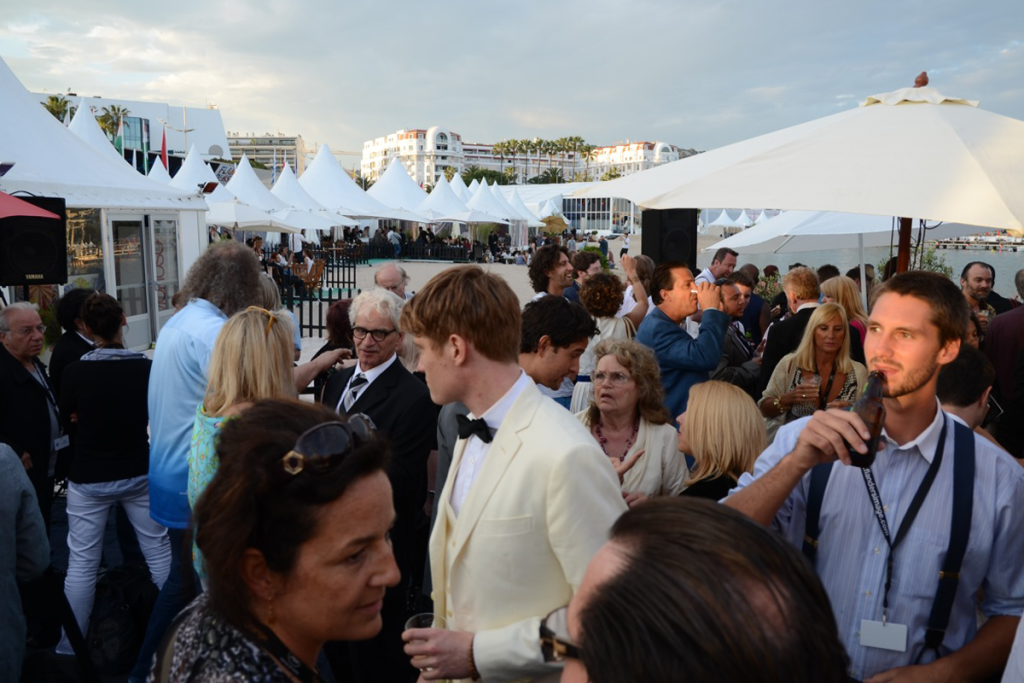
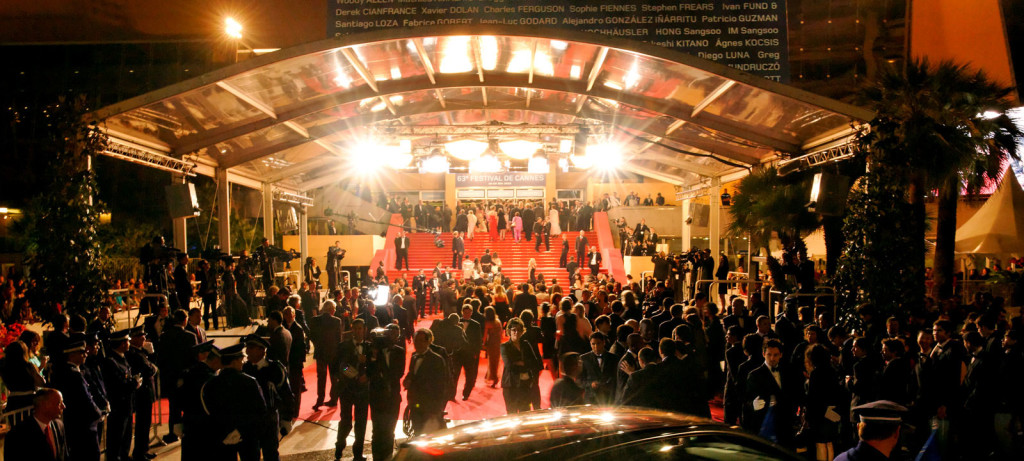
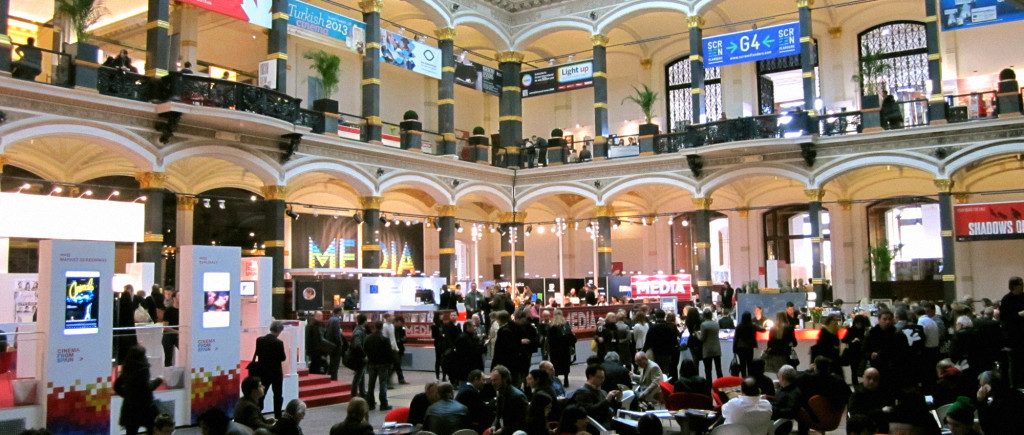
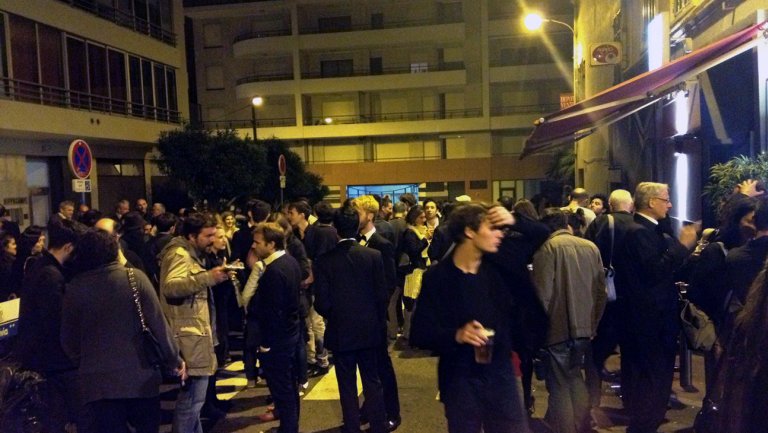
love this article, nice to see somebody taking in the event with a bit of humor. We need more voices like this in the midst of these mega events that seem to take themselves and all who attend so seriously.
Thanks, Alex! I think I was taking myself pretty seriously at the time – it’s only ten years later that I see the humor.